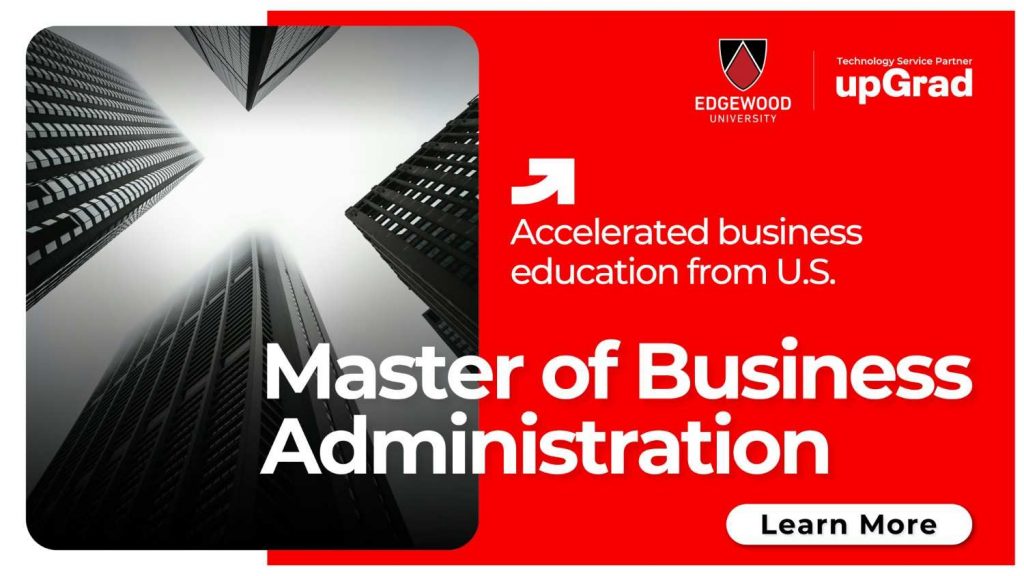A traditional MBA holder in Canada earns an annual average base salary of CAD 87,098, with the figure increasing to CAD 105,061. For holders of an executive MBA, the average yearly base pay in Canada is CAD 73,205, with a maximum amount of CAD 89,774. Based on this data alone, any candidate would likely choose a conventional MBA program over an executive one. However, salary should never be the sole determinant in such choices, and it never is.
In such cases, candidates also consider other factors, such as career stage, experience, and goals, when making their choice. This blog will discuss the key differences between executive MBAs and traditional MBAs, shedding light on how candidates can select the most suitable option for themselves.
Source: Glassdoor
Executive MBA vs. Traditional MBA in Canada – Key Differences and Which One Fits You Best
Both types of programs share several similarities, focusing on developing leadership, decision-making, and critical-thinking skills in students, and have similar vital areas of study, including finance, operations, marketing, and human resources. However, they are significantly different as well.
Target Audience
A traditional MBA program targets early- and mid-career professionals, as well as recent graduates, who aim to build a solid foundation in business skills or transition their careers. On the contrary, executive MBA programs are more suitable for senior managers and experienced professionals who wish to enhance their leadership skills while continuing in their current roles.
Eligibility
In a traditional MBA program, students must have a bachelor’s degree. The work experience requirements in these programs may vary, though. However, in online executive MBA programs, candidates must possess substantial experience in executive or managerial roles. In most cases, participants in such programs typically require work experience ranging from 5 to 10 years.
Also Read: Should I Get an MBA for Career Growth?
Curriculum
A traditional MBA offers students a comprehensive business education covering core subjects like finance, operations, and marketing, often with elective options for specializations such as entrepreneurship, international business, and technology. In contrast, online EMBA programs focus on advanced leadership and strategic management. Their curriculum is designed around real-world challenges, frequently incorporating executive-level case studies and a global business perspective.

Mode of Teaching
Traditional MBA programs are full-time courses delivered in conventional classroom settings, combining lectures, internships, group projects, and networking events with regular lessons. However, these programs are also offered in online and part-time formats. Executive MBA programs, on the other hand, provide a flexible schedule with classes typically held during evenings and weekends. They often include online components, peer-led discussions, and interactive workshops to accommodate working professionals.
Duration
Duration is another key difference between Executive MBA and traditional MBA programs. Traditional MBA programs usually last between 1 and 2 years, depending on whether they are full-time or part-time, with part-time programs sometimes extending up to 3 years. Executive MBA programs typically require a minimum of 2 years to complete, as they are designed to accommodate the busy schedules of working professionals.
Also Read: MBA Admission Requirements: How to Get Into a Top Online MBA Program in Canada
Factors to Consider When Choosing Between an Executive MBA and a Traditional MBA
When choosing between an executive MBA program and a traditional MBA program, prospective students should consider factors such as their career stage, time commitment, and learning environment to make the best decision.
| Factor | Traditional MBA | Executive MBA |
| Career Stage | Better for early-stage professionals. | It is better for seasoned professionals. |
| Time Commitment | It is better for students who can commit full-time. | It is ideal for students seeking flexible schedules. |
| Learning Environment | It is better for students who prefer broad-based and collaborative learning. | It is better for students who prefer peer-driven learning. |
Also Read: How an Online MBA Can Help You Advance Your Career in Canada
Why upGrad’s MBA Programs are Great Choices for Canadian Professionals?
The online MBA programs offered through upGrad provide excellent options for candidates pursuing either an Executive MBA or a traditional MBA. Their online format offers the flexibility typical of executive programs, while on-campus immersion and industry-relevant specializations cater to students who value the advantages of a conventional program.
- Master of Business Administration (MBA), O.P. Jindal Global University
- Master of Business Administration, Golden Gate University
- Master of Business Administration, Edgewood University
- Master of Business Administration (MBA), Liverpool Business School
- Dual Degree MBA and DBA, Edgewood University
Related Articles
Top MBA Jobs in Canada: High-Paying Career Opportunities and Career Paths for MBA Graduates
🎓 Explore Our Top-Rated Courses in Canada
Take the next step in your career with industry-relevant online courses designed for working professionals in Canada.
FAQs On Executive MBA vs. Traditional MBA
Q: Is an Executive MBA better than a regular MBA?
Ans: There is really no better option among executive MBAs and regular programs. The choice, in this case, depends on the individual student’s career goals, preferences, and experience level.
Q: What is the main difference between an Executive MBA and a traditional MBA?
Ans: The main areas of distinction between executive and traditional MBAs are the program delivery format and the target audience. Apart from that, they also differ in terms of duration and focus areas of education.
Q: Who should pursue an EMBA versus a traditional MBA?
Ans: EMBA programs are ideally suited for experienced professionals seeking to advance their careers while maintaining their current roles. Regular MBAs are for people looking to change careers, gain fundamental business skills, and start a business.
Q: How much does an Executive MBA cost compared to a traditional MBA?
Ans: Executive MBA programs are usually costlier than the regular MBA programs. The primary reason for such a cost difference is that the former focuses on experienced professionals and offers a more condensed and intensive curriculum.
Q: Can I do an Executive MBA while working full-time?
Ans: Yes, students can pursue an executive MBA program while working full-time. These programs target such professionals and, as such, offer them flexible schedules with classes held on weekends and/or evenings.








